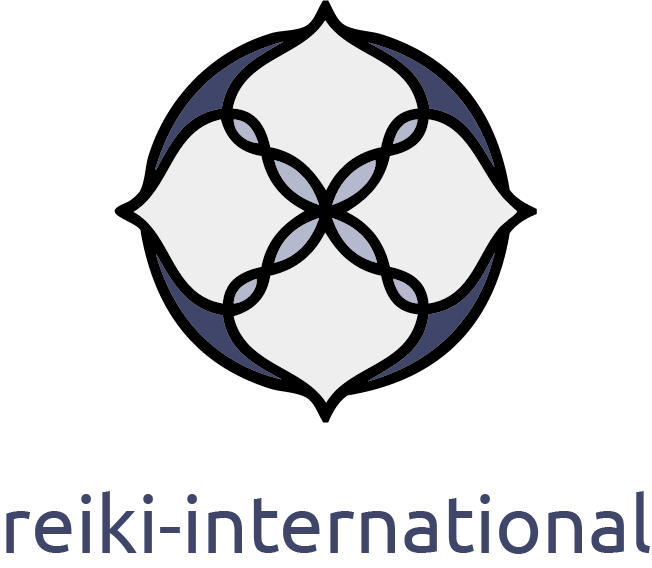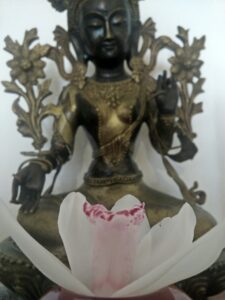This is how this article came about
The other day I was in an exchange with a Reiki Master I hold in high esteem. In the process I told him a story and he said it was such a valuable case study that I should definitely publish it. To do that, I have to reach out, give context. And so the story of H … I’ll call her Hunna, became the catalyst for this.
Danger of affirmations and ‘positive thinking’
Harmful beliefs and their dissolution through positively formulated affirmations are common and not fundamentally wrong ideas. For example, “I am weak” is ‘dissolved’ by “I am strong”. So-called ‘positive thinking’ is often sought in this way. One of the dangers associated with this is that the positively formulated wishful thinking contains a counterproductive expectation.
“I always have to be strong
under all circumstances.”
That is fatal. As many ‘classic’ men can testify, who never allow themselves to be vulnerable or even weak and ultimately break down due to an ever-increasing hardening.
Wording is important. But …
Yes, there are rules how an affirmation should be worded (present tense, free of negation, etc.) as we also teach it in the Reiki 2 seminar. This is one of the most precious techniques from the treasure chest of Reiki 2. Thank God, reiki has a harmonising effect on subliminal and harmful expectations. The reiki virtually removes the danger, so that the application may be in the service of consciousness as well as the effect for the highest good of those involved.
The goal is liberation, health and happiness. We should not disregard this. In other words, the wording in itself is a means to an end. The wholesomeness and effectiveness of affirmations lies in the letting go of a possibly rigid basic attitude and the associated expectations.
The shadow side is a resource
With all the striving for assertiveness – but also devotion; for strength – but also vulnerability; for kindness – but also self-realisation (all thoroughly ‘positive’ qualities), we overlook the flip side. We condemn aggressiveness, calculation, the capacity for violence and the instinct for self-preservation (to name but a few).
On the one hand, this is paradoxical, because our denial and suppression of such supposedly ‘negative’ qualities actually strengthens their power and increases the likelihood that they will push back to the surface in inappropriate situations and inadvertently creep into our actions.
„What you resist persists“.
The quote comes from C.G. Jung. Jung speaks of the ‘integration of our shadow side’. For Esther Veltheim, this process offers the chance for a ‘breakthrough’ as I discuss with her in the RTalk “But… Why!? Peter Koenig talks about ‘reclamation work’ in the RTalk ‘Source’.
The origin of the word construct ‘negative affirmation’
Years ago, I gave a seminar in Hamburg together with Peter Koenig, because the 7-step method in my Life Management seminar and Peter’s work are two separate approaches to the same solution process. The term ‘negative affirmation’ spontaneously came to my mind in the following case history.
Hunna’s Liberation
It was a Reiki evening with experienced Reiki practitioners. They sat in a circle and looked at me eagerly. I was an invited guest and they seemed to expect something from me. I looked around and saw all these Reiki people who had all learned Reiki 2 affirmations, which were positive counter formulations of a negative belief system. So, the battered girl who learned early on that “all men are violent” and internalised the “I’m not worth anything” imprint that came out of the experience of violence directed at herself. Ergo the inversion and the affirmation worked out in Reiki 2: “I am a lovable woman.”
“Well,” I said, “you are all semi-enlightened, in harmony and all strong and lovable women. That’s what you tell yourselves every day and send reiki to your positive affirmations. Would you like to explore something new?” Joyful nodding of the head, expectant smile.
“Who would like to experience the healing power of a negative affirmation?” Dismayed silence, as this seemed completely at odds with what we were teaching in Reiki 2. Glances turned away, legs crossed.
Hunna wears a pearl necklace and blow-dried perms.
One lady in particular stood out because of her expensive appearance. Hunna. Channel Deux-piece. Elegant, wealthy. 50-55 years old. She did not look away when I looked at her, returned my smile quite decently. I asked her if she wanted to try an experiment with me. She answered in the affirmative and I turned my full attention to her, blocking out everyone else present.
“Thank you Hunna for your trust. Please say the phrase, ‘I am a sloven’.”
Dead silence in the room. Icy shock.
Hunna, however, still looked me straight in the eye and said without batting an eyelid and in a calm voice: “I am a sloven.”
“Please repeat that sentence again.” She did it just as neutrally as if she were reading from a newspaper.
“A third time, please.” Same tone of voice, same facial expression. Perhaps now, for the first time, a hint of a question mark flitted across her face.
“I’m a sloven.”
“You know that phrase, don’t you? It’s an old one that’s been with you all your life, isn’t it? Say it again, please.”
She did as asked. Now, however, life sprang up in her. Not because of the sentence as such, but because I drew her attention to the fact that this sentence had been present since time immemorial and she had become so used to it, it was so omnipresent that she no longer even noticed it – like constant background music. This realisation surprised her and the question mark was now audible as I asked her to say the sentence one more time.
“Well,” I said, “do you like to take the next step in our experiment? Do you dare to?”
She nodded, I asked her to say the sentence again and no sooner had she finished it than I ordered her, “Say it again and add ‘and that’s alright’.”
She got to about the word “….a ” as she started to grin. At “sloven” she could barely recover from laughing so hard and at “and that’s a good thing” the whole room could observe a miracle: Everything in this woman relaxed, she just laughed out loud to herself and kept repeating “and that’s a good thing”.
And that’s alright.
As a group leader, I had a great experience: almost at the same time as Hunna, one or two women also went through the same process: they felt something loosening in their own bodies and waves of happiness coming up. Then others followed and started laughing too. At first cautiously and looking around. After a short while, about half of those present were laughing and they felt the healing effect, the release in their own being that Hunna was experiencing. The other half were confused and unsettled.
I then explained that every cell in Hunna had spent a lifetime blocking and resisting being a sloven – and with the resistance it fed and grew stronger (what you resist will persist). I explained that Hunna had spent a lifetime doing everything, bending and disguising herself and now, with one big and sustained laugh, she gave herself the freedom to be a slut down to the very core and fibre of her existence. Her Channel costume would no longer be something obsessive in the future, but can now be enjoyed to the fullest and with pleasure. And if she ever accidentally went to town in her pajamas, she would laugh as joyfully as she did just now (where in the past she would have felt ashamed and annoyed).
Such is the power of negative affirmations.

When Reiki is written with a capital R , it refers to teaching and practice, and reiki (with a small r and in italics) refers to the energetic phenomenon often referred to as the Reiki energy.
Original is in German; translated with aid of www.DeepL.com



Merci René , pour ce témoignage fondamental pour moi , aujourd’hui .
Je suis en phase de reconstruction et je reprends mon
auto traitement journalier , je sentais de la résistance en moi depuis quelques jours et aujourd’hui j’ai arrêté mon traitement en me disant non c’est trop douloureux , je dois faire autre chose. Et j’ai trouvé votre témoignage . Je vais continuer mon auto traitement. Gratitude à vous Elisabeth Gilles